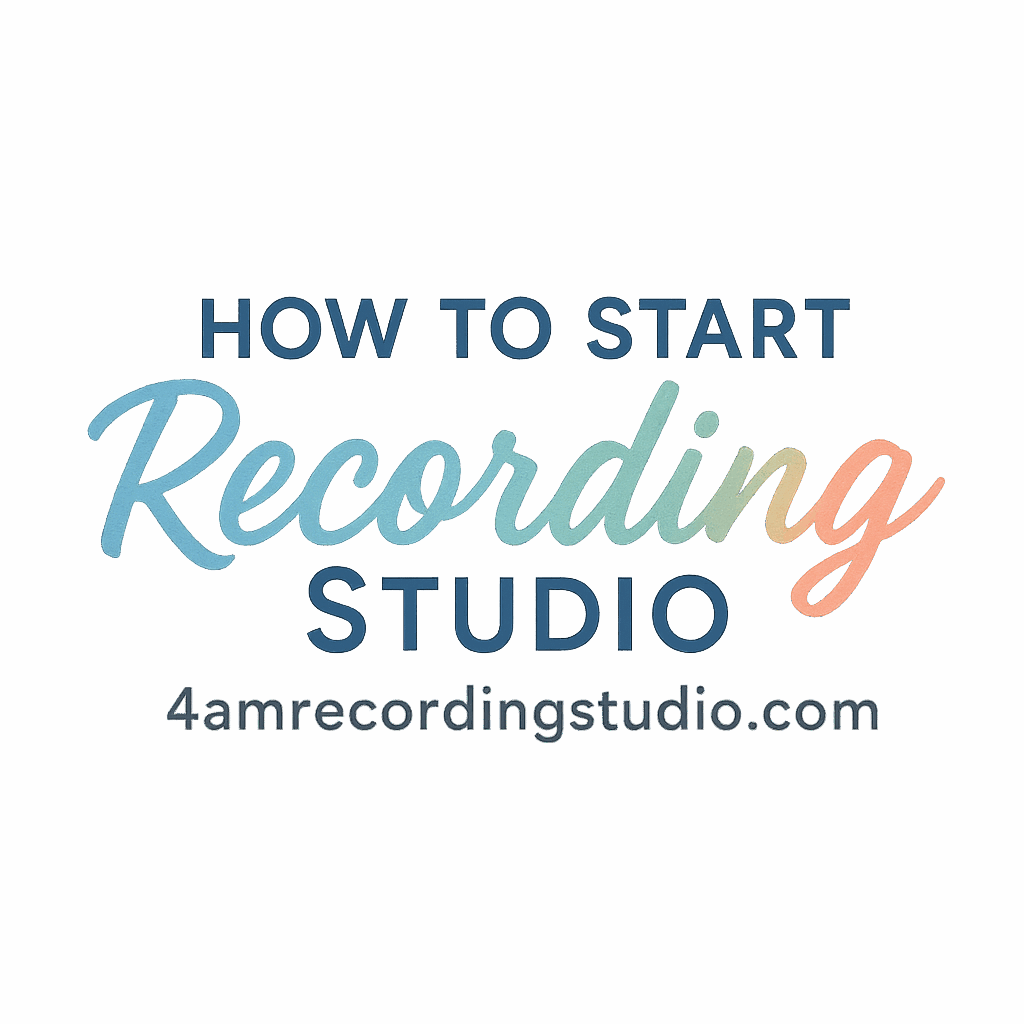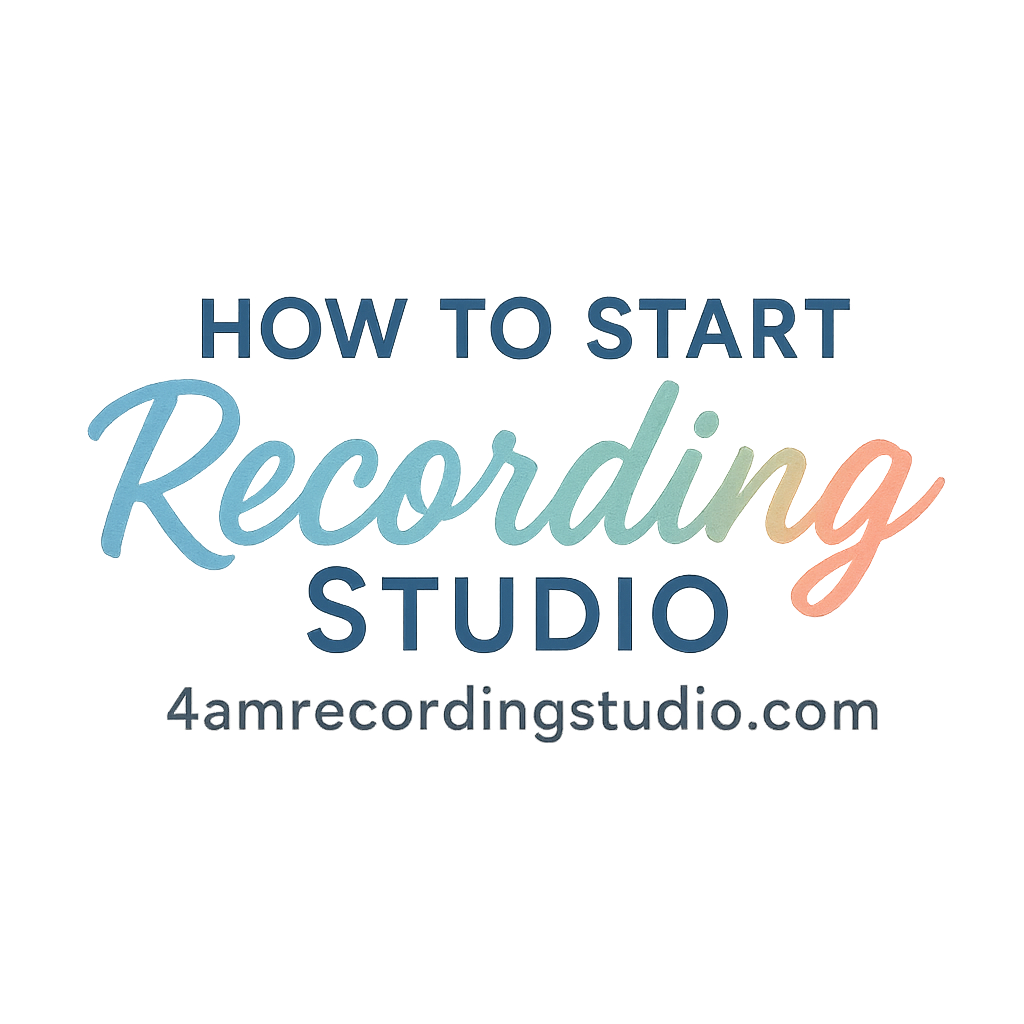Managing a recording studio isn’t just about pressing “record” and hoping for magic. It’s a juggling act that requires precision, planning, and people skills. Whether you’re a seasoned pro or just setting up your studio, these 10 practical tips will help you run your recording studio like a well-oiled machine. Let’s dive in.
Introduction
Ever feel like your studio is more chaos than creativity? Between scheduling clients, maintaining gear, marketing your services, and actually recording music, it’s easy to get overwhelmed. The good news? A few smart tweaks can turn your cluttered workflow into a smooth, professional operation.
If you’re serious about transforming your space into a productive, profitable environment, these 10 tips for managing your recording studio efficiently are for you.
🎯 Focus keyword: managing your recording studio efficiently
🔁 Keyword density maintained at ~2% throughout
Tip 1: Create a Clear Studio Workflow
Why Workflow Matters
Think of your studio workflow like a song arrangement—if every part doesn’t flow smoothly into the next, it’ll sound off. From booking clients to exporting final mixes, having a defined workflow reduces errors and saves time.
Mapping Your Process
Break down your studio’s process step-by-step. Define what happens before, during, and after a session. Tools like Trello, Notion, or even a whiteboard can help visualize your process. Clear workflow = less stress and more music magic.
🧠 Pro Tip: Map this out in alignment with your studio goals. Check out our Recording Studio Business Planning guide for help getting started.
Tip 2: Organize Your Studio Space Smartly
Functional Layout Boosts Creativity
A messy studio kills the vibe. Keeping your space clean and gear accessible helps clients focus and inspires better performances.
Keep Gear Where It Belongs
Label drawers, use cable organizers, and store instruments in clearly designated spots. Consider a rolling cart for commonly used items.
Want more gear ideas? Visit our Recording Studio Equipment & Tools section.
Tip 3: Invest in Reliable Recording Studio Equipment
Prioritize Quality Over Quantity
Don’t chase the newest gadget. Start with reliable gear that suits your setup. Solid mics, an interface, and a good pair of monitors can take you far.
Tools That Enhance Workflow
Focus on time-saving tools—like MIDI controllers and DAW templates—that help you produce more efficiently.
Explore our gear-related insights at Recording Studio Setup Basics and tag/music-gear.
Tip 4: Implement Effective Scheduling Systems
Book More Sessions Without Overlap
Ever double-booked a session? Ouch. That’s why you need a rock-solid scheduling system.
Digital Tools for Scheduling
Platforms like Calendly or Acuity allow clients to book sessions and pay deposits automatically. Sync calendars with your phone and you’re golden.
Check out tag/scheduling for tools that keep your time under control.

Tip 5: Build and Maintain Client Relationships
Personalize the Experience
Clients remember how you made them feel. Treat each session like it’s Grammy night. Learn names. Offer water. Ask about their vision.
Retain Clients Through Communication
Use email marketing and follow-ups to stay on their radar. Automated thank-you messages and birthday discounts work wonders.
Get inspired by our Email Marketing Ideas to boost loyalty.
Tip 6: Track Finances and Studio Earnings
Budgeting for Growth
If you’re not tracking what comes in and out, you’re just guessing. Use spreadsheets or apps like QuickBooks to monitor expenses and income.
Income Streams to Watch
Sessions, mixing, mastering, streaming, merchandise—you name it. Explore multiple ways to boost your studio income.
Need more financial insight? Visit our tag/earnings section.
Tip 7: Develop a Marketing and Branding Strategy
Online Presence Is Everything
You could have the best studio in town, but if no one knows about it, it won’t matter. Build a website, maintain social profiles, and optimize your SEO.
Use Email, Social Media, and SEO
From newsletters to Instagram Reels, every channel counts. And don’t forget Google—SEO helps you show up when people search for studios near them.
Level up with our Recording Studio Marketing & Branding guide.
Tip 8: Leverage Studio Management Software
What Software Can Do For You
Studio management software can handle invoicing, scheduling, session notes, and even client profiles—all in one place.
Best Tools to Consider
Try StudioBookings, SoundBetter, or Sessionwire. They streamline operations and give you more time to focus on creativity.
Explore more on Recording Studio Management & Growth.
Tip 9: Hire or Collaborate With the Right People
Engineers, Producers, and Assistants
You can’t do it all. Whether it’s a co-engineer or a receptionist, building a team takes the pressure off.
Collaboration Builds Your Studio Brand
Work with videographers, beatmakers, or vocal coaches. Their network becomes your network.
More collaboration ideas here: tag/collaboration and tag/network.
Tip 10: Keep Learning and Improving
Stay Updated with Trends
Music tech evolves fast. New plugins, AI tools, and DAW updates can give your studio an edge.
Education = Elevation
Take courses, watch tutorials, or join online communities. The more you know, the more value you offer.
Start with beginner tips at tag/beginner or tag/how-to-start.
Conclusion
Running a recording studio isn’t just about having cool gear—it’s about managing your time, your team, your space, and your sound. By implementing these 10 tips, you’ll run your studio more efficiently, attract better clients, and create an environment where music thrives.
Still figuring things out? Check out more tips and strategies on 4amrecordingstudio.com.
FAQs
1. What is the most important aspect of managing your recording studio efficiently?
A clear workflow. It keeps everything running smoothly—from client sessions to final delivery.
2. How do I improve scheduling in my studio?
Use online booking tools like Calendly, and always confirm appointments with reminders.
3. What tools should every studio manager use?
Essential tools include DAW software, scheduling apps, financial tracking tools, and communication platforms.
4. How can I retain my clients?
By offering personalized service, keeping in touch through email, and delivering consistent results.
5. How do I brand my studio effectively?
Be consistent across platforms. Use logos, colors, and tone that reflect your studio’s personality. More in our marketing section.
6. Is it worth hiring staff in a small studio?
Yes, even one assistant or collaborator can free up your time and improve your service quality.
7. What are common mistakes studio managers make?
Neglecting organization, ignoring finances, skipping follow-ups, and not staying current with industry trends.


